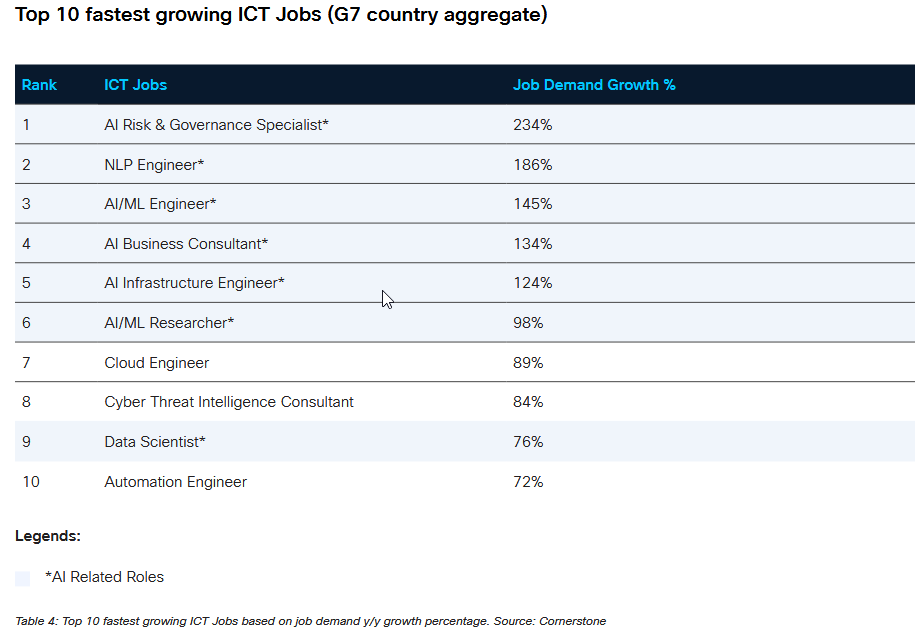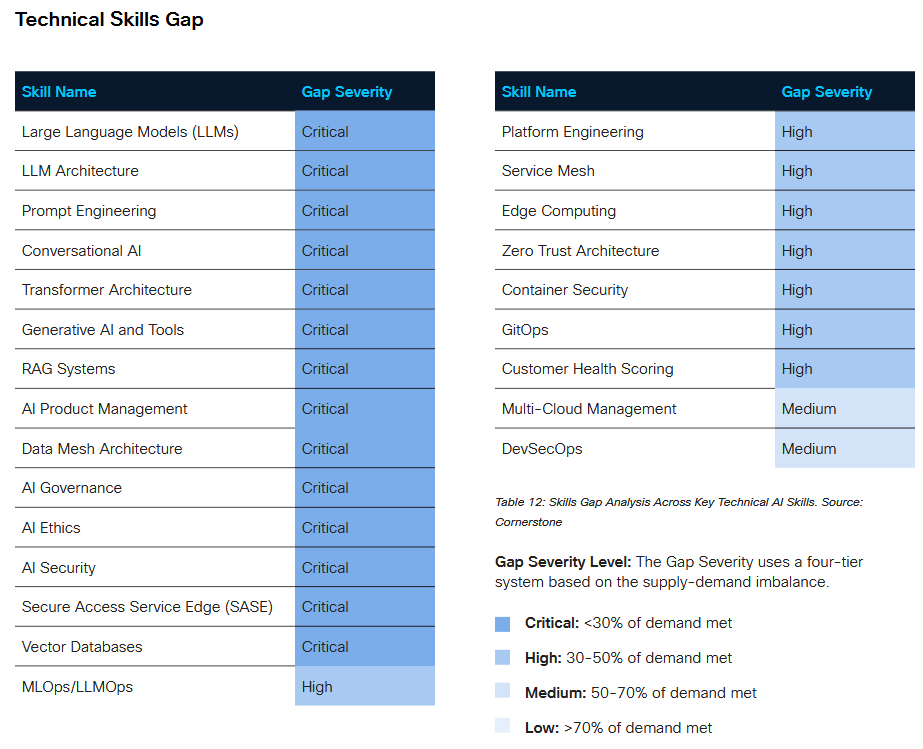
Artificial intelligence is now present in every part of our lives. The 2025 report of the AI Workforce Consortium shows that the greatest transformation is happening in the world of work, especially in technology and data-focused professions. According to this G7-wide report, AI is not only creating entirely new roles but also reshaping existing ones from the ground up. The report examines how 50 job roles across the G7 are evolving, which skills are rising in importance, and how the world of work is changing in the age of AI. This raises an important question: What does this shift mean for students, young professionals, and anyone who wants to future-proof their career?
Why Is This Report Important?
“ICT in Motion: The Next Wave of AI Integration (2025)” is a comprehensive study prepared by the AI Workforce Consortium. This consortium brings together some of the world’s largest technology companies, including Accenture, Cisco, Microsoft, IBM, Google, Intel, SAP, Cornerstone, Eightfold, and Indeed.
The goal of the consortium is to understand the impact of AI on the workforce using concrete data, real job postings, and global labor-market trends. The report analyzes AI skill requirements, workforce transformation and fast-growing roles and capabilities across 50 job categories in the G7 countries (USA, Canada, UK, Germany, France, Italy, Japan). The analysis is based on millions of job postings published between 2024 and 2025.
AI Skills Are Now Essential Across All Professions
According to the report, 78% of the 50 examined job roles now require AI skills. This is no longer limited to software developers. Finance, marketing, law, human resources, and education roles increasingly demand AI literacy.
Fastest-Growing AI-Related Roles:
- AI Risk & Governance Specialist (+234%)
- Natural Language Processing (NLP) Engineer (+186%)
- Artificial Intelligence / Machine Learning (AI/ML) Engineer (+145%)
- AI Business Consultant (+134%)
- AI Infrastructure Engineer (+124%)

This shows that artificial intelligence has become a core competency of the modern workforce, not a specialized niche skill.
Rising Demand for AI Ethics, Security & Governance
As organizations adopt AI at scale, critical questions emerge:
- Is the AI system fair?
- What data is it using?
- Who is accountable if the model makes a wrong decision?
- Can the model be manipulated?
The report shows rapid growth in demand for skills such as: Responsible AI implementation, AI governance frameworks, Large Language Model (LLM) security and jailbreak defense, AI ethics
Growth rates for these areas range from +150% to +298% and represent new, fast-expanding career paths.
Critical Skills Gap
A major warning in the report is the severe talent shortage in AI-related skills. Demand significantly exceeds supply in areas such as:
- Large Language Models (LLMs)
- Prompt engineering
- Generative AI
- RAG (Retrieval-Augmented Generation) systems
- AI governance and ethics
- Conversational AI
- Transformer architecture
- AI security

Students and young professionals who invest early in these skills will gain a strong competitive advantage. Because university programs have not kept pace with the speed of change, self-learning and online training have become essential.
Even those who do not consider themselves technical will need at least basic AI literacy.
Human Skills Remain Essential
As AI becomes more capable, human skills become more important, not less.
The report highlights the following as the most critical:
- Critical thinking
- Problem-solving and creativity
- Leadership
- Communication and collaboration
AI accelerates technical work, but humans excel in strategy, creativity, empathy, and decision-making. The most successful professionals will be those who combine technical skills with strong human skills.
What Should Students and New Graduates Do?
The report highlights two major trends:
- Entry-level roles are becoming more complex due to AI.
- Experience requirements are increasing in many countries.
Based on these findings, students can take practical steps such as:
1. Build AI Literacy: Basic AI tool usage is becoming a universal requirement across roles.
2. Create a Portfolio: Even small AI-supported projects can stand out to employers.
3. Gain Internship & Project Experience: Employers increasingly value real-world experience; early internships and project work are becoming essential.
4. Strengthen Human Skills: The report emphasizes the importance of communication, problem-solving, and collaboration. As AI grows, these skills will only become more valuable.



